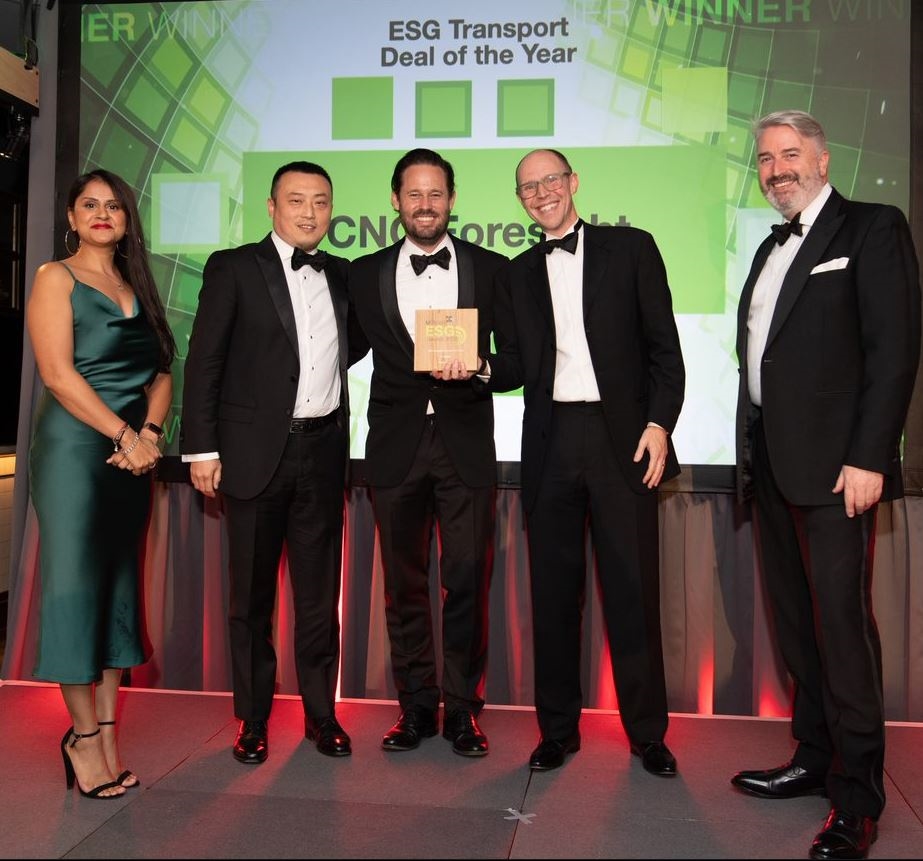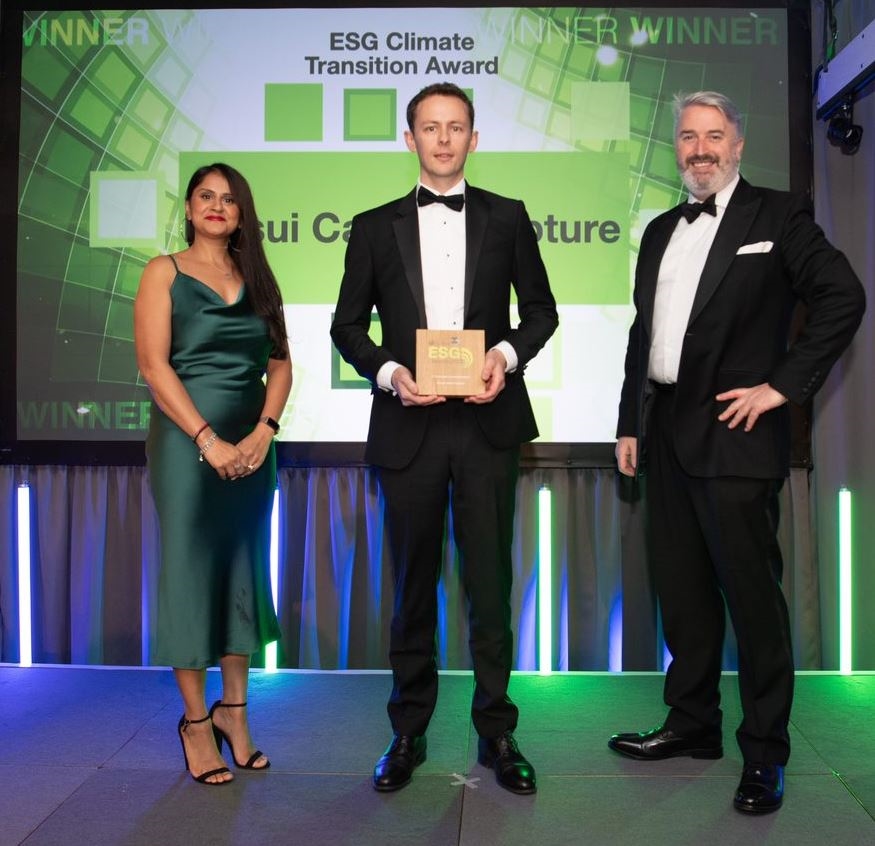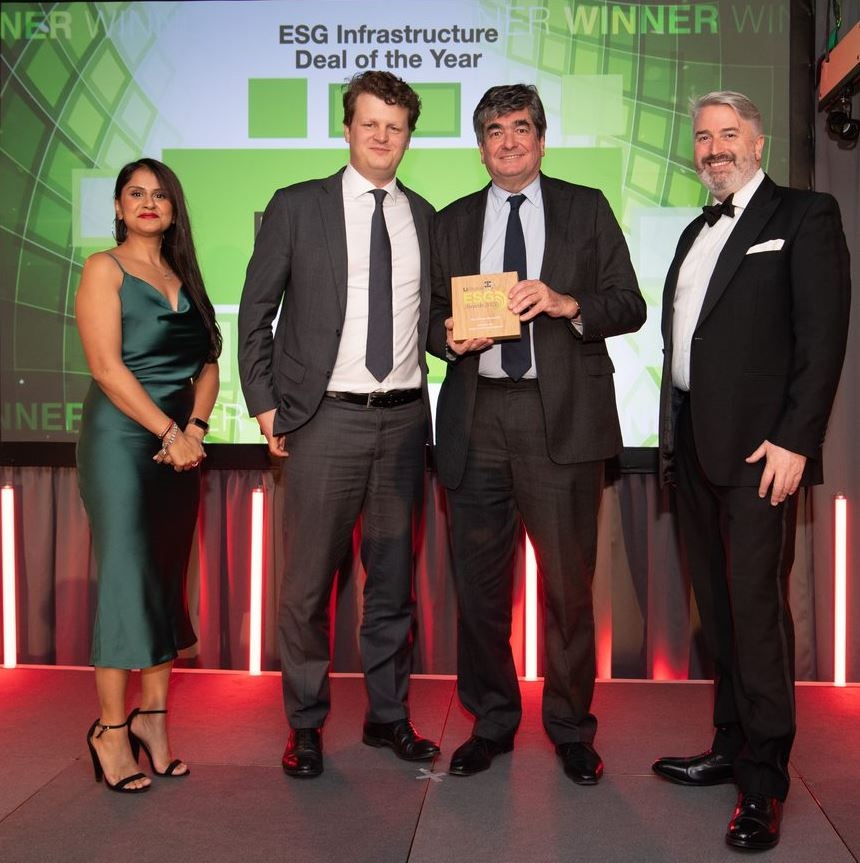IJGlobal ESG Awards 2021 – The Deals
In this section of the write-ups from IJGlobal ESG Awards 2021, the focus is turned on the transactions – identifying real developments from during the judging period that turn the dial on the environmental, social and governance front in infrastructure and energy.
As with the companies category of these awards, this element is difficult to judge and – unlike our ceremonies for greenfield (IJGlobal) and infra funds/M&A (IJInvestor) – it's not essential (though preferable) that these deals reach financial close in the judging period.

As this was our first ESG awards night with an event hosted in London and reflecting global activity, this was indeed challenging… however, we countered that by enlisting an international panel of judges who had the final say on all categories and the right to withdraw any award should they see fit.
Once we roll these awards out on an international basis – with events to celebrate achievements in Europe; the Middle East and Africa; Asia Pacific and the Americas – regional judging panels with direct exposure to each of these markets will be recruited to make informed decisions on submissions.
However, in this first year we relied on a deeply experienced panel of judges to pore over the submissions and make a call on each category.
It was the judges who separated out the categories to reward deals in regions where they were particularly impressed by submissions... which goes some way to explaining why there are some regional awards in certain sectors, and not in others.
During the awards night – hosted on Thursday (21 October) in the BAFTA HQ in Piccadilly, London, by IJGlobal editor Ila Patel and editorial director Angus Leslie Melville – conversation turned to the other ceremonies we host and their future conflict with our new ESG awards.
Interestingly, the flow of conversation was that (in time) all awards that are submitted to the IJGlobal Awards (greenfield and refinancing) will likely be required to incorporate ESG credentials. When we reach that stage, we anticipate that the main IJGlobal (traditionally hosted in March) and ESG awards will merge.
The same may even stand true for the IJInvestor Awards (celebrating fundraising, infra fund activity and M&A)... but that's unlikely... because we enjoy hosting a party... and as last night proved beyond a shadow of doubt – we're rather good at it, while also making them fun.
But for now, let's take a look at all the winners in the deals section which are now presented in no particular order.
ESG Energy Deal of the Year – Americas
Few submissions for the IJGlobal ESG Awards 2021 struck a chord with the judging panel quite to the extent of Jacarandá Solar Plant in Brazil – a project led by Atlas Renewable Energy.
The Jacarandá PV plant in Juazeiro, the State of Bahía, is expected to supply more than 440GWh per year that will mostly be used to serve American material science multinational company Dow under a 15-year contract, for which the offtake started in the first half of 2021.
It has an installed capacity of 187MWp with more than 450,000 modules, generating enough energy to supply a sizable part of Dow’s Aratu Site’s energy needs.
According to the average consumption of a Brazilian family, the amount of energy generated will be equivalent to supply enough power to a city of 750,000 inhabitants. Further, the plant will avoid around 35,000 metric tons of CO2 emissions per year based on the GHG Protocol (greenhouse gases) methodology developed by the World Resources Institute which follows the methods used by the IPCC (Intergovernmental Panel on Climate Change).
But it was the social elements that won over the judging panel with one judge describing it as “a very interesting initiative” and another saying it was “a fantastic example of placing diversity in the workforce at the centre of a company's policies”.
Judges were wowed by the submission with one saying that it demonstrated “the 'S' in ESG is equally important” as well as providing a “combination of environmental and social aspects in an emerging market” and a “compelling approach to gender diversity”.
One judge said: “Jacaranda is not just another renewable energy company. Its development of projects throughout Latin America already sets it apart, but it is its social initiatives that drive recruitment from local communities and – in particular – target women and Afro descendants to fill its workforce that make it a worthy winner.”
Another adds: “The combination of environmental and social aspects in one initiative in an emerging market is outstanding. Gender issues are among the most important in the social agenda in Brazil, noting that the project location deals with significant gender imbalance both in terms of representation and pay equality. The fact that this adds to a renewable energy project confirms the very impactful nature of the project… the clear winner in my view.”
“Jacaranda is playing a vital role in Latin America developing renewable energy projects. Of particular note is its inclusive culture during construction which has long-term benefits to the local communities,” adds another judge.
ESG Energy Deal of the Year – Europe
European ESG Energy Deal of the Year was won by Northvolt that was established in 2017 with the plan to enable the future of energy by developing the world’s greenest battery cell and establish a European supply of batteries.
This award recognises the £3 billion financing two gigafactories for lithium-ion battery cell production – Northvolt Ett in Skellefteå, Sweden, and Northvolt Zwei in Salzgitter, Germany.
The Skellefteå plant is one of Sweden's biggest industrial projects in decades and is Europe's biggest lithium-ion battery plant. The plant initially will provide 16GWh of cell manufacturing capacity and will eventually reach a capacity of at least 32GW with expansion plans and eventual recycling facilities under development to address the full life cycle of electric vehicle batteries.
Once built, Northvolt will source its power from nearby hydroelectric facilities – ensuring all its power is from renewable sources – and it is committed to recycling the batteries it manufactures when they have come to the end of their useful life.
The project was originally conceived by ex-TESLA executives to form a key part of the European drive towards environmental sustainability and to aid Europe in becoming self-sustaining in its production of batteries for electric vehicles, a key component in energy transition and in assisting governments in their decarbonisation targets.
This is a first-of-its-kind project with two anchor sponsors – Goldman Sachs and Volkswagen – with a number of major European vehicle manufacturers including VW, BMW, Audi and Scania as offtakers for the project's car battery cells.
It was the first project financing for a greenfield lithium-ion battery manufacturing plant project and was always going to be a contender to win this award, though it did have to see off some lively contenders:
- CDPQ’s Velto Renewables – entering the southern European renewables market with ambitious plans afoot
- Fécamp Offshore Wind Farm – a market defining transaction in France
- San Serván green loan – the first climate bond certified green transaction in Spain
Northvolt will supply batteries for a wide selection of end markets that range from electric vehicles through to energy storage systems, portable and industrial applications. In essence, it feeds into Europe’s ambitions to enable some of the most exciting projects on the agenda.
Its customers need large volumes of high-quality batteries with a low CO2 footprint, and these gigafactories are a solution to the challenge Europe faces to build a fully regionalised value chain.
The judges were impressed by Northvolt, describing it “a unique project in a sector that lends itself to ESG”, celebrating it as “a large and essential project that will further support the move to decarbonising the car industry”.
“This is a potentially ground-breaking project in the European energy transition industry, and while unproven still – as an investment – I hope it will be successful in the long run, and therefore attract more capital to such projects,” said another judge.
And the praise kept rolling in: “This project is the first of its kind, a pure play activity, and it was structured in line with best market practices involving multi-stakeholder collaboration and supporting energy transition… not to mention the large scale and the innovative technology. It stands out from the rest and it is the clear winner in my view.”
The judging comments were rounded off with: “Northvolt stood out as being truly innovative and, given its scale, genuinely game changing. As with Project Blaise, the development and then recycling of EV batteries is clearly beneficial, but it is the plant’s location – allowing it to source power from hydroelectric facilities and stimulate the regeneration of industrial Sweden – that sets it apart.”
ESG Energy Deal of the Year – APAC & Africa
Due to the spread of submissions and their nature, the independent panel of judges for IJGlobal ESG Awards 2021 elected to create a category to recognise developments across the Asia Pacific region together with Africa.
After great deliberation, the judges identified the Development Bank of Southern Africa (DBSA) as the winner for this rather extensive region, recognising it for the key role it played in the €200 million issuance of green bonds to target climate mitigation and/or adaptation.
The bonds were issued through a private placement with French development finance institution Agence Française de Développement (AFD) and were structured in alignment with the DBSA's Green Bond Framework which reiterates the lender's commitment to playing a role in the transition to a low carbon economy.
The framework is aligned with the International Capital Market Association (ICMA) Green Bond Principles.
The proceeds of the issue of the bonds are being applied to projects that contribute to climate mitigation and/or adaptation, that are aligned to the South Africa's National Development Plan's objective of an "environmentally sustainable and equitable transition to a low carbon economy" and that are aligned with the UN Sustainable Development Goals and with the International Development Finance Club (IDFC) methodologies for mitigation and adaptation.
In particular, eligible projects will include projects in solar energy, wind power and water management.
The bonds – the first green bond issuance by DBSA and the first time a South African issuer has issued bonds in Euroclear France – are governed by French law.
One judge pointed to “lots of firsts in this transaction”, adding that it was “difficult not to applaud the channelling of such extensive investment into affordable and clean energy in South Africa”. The judge continued: “The investment’s target of creating more than 6,000 jobs and driving financial inclusion for underserved populations is particularly impressive.”
Another pointed out that this transaction warranted the “sustainable finance label” and was a first of its kind, addressing environmental and social issues. The judge added it was a “very impactful contribution to emerging market economies” and that “the active involvement of two African financial institutions” put them ahead of other submission “thanks to wider reach and impact”.
One judge went as far as to say they “consider the partnership by AfDB and Nedbank to stimulate ESG-linked capital markets issuance on an emerging market SX as one of the deals of the year”. One of the same mid added: “It is right and proper that development banks take the lead in ESG and set an example for others to follow.”
Yet another says: “The bonds have been structured in alignment with the DBSA's recently released Green Bond Framework which reiterates the DBSA's commitment to playing a role in the just transition to a low carbon economy; his is the first green bond issuance by DBSA and the first time a South African issuer issues bonds in Euroclear France.”
And the judging comments were rounded off by: “The recent green bonds framework is adding requirements to projects that provide a good steer towards an evolving planet temperature. Africa will unfortunately be hit hard as temperatures increase and it's not only about renewables for power, we all need to invest in climate mitigation and adaptation measures as required in this bond framework.”
ESG Social Infrastructure Deal of the Year
The winner is Prince George's School Bundle P3 – a rare social infrastructure deal in the US P3 market and a transaction that the judges believe warrants recognition for the role it plays on a societal level, recognising its impact on the public education system.
The judges were won over by the submission for Prince George's County Education & Community Partners and the delivery team played on Prince George's School Bundle P3 in Maryland.
Prince George’s County became the first district in the US to finance the construction of five new middle schools and one K-8 school through a P3, despite concerns that the project could encounter similar problems to a transport deal that was embroiled in legal turmoil in the state.
The judges celebrated it as a “good and worthwhile project” and that the delivery team had taken an “imaginative approach to an under-loved and crucial part of social infrastructure”, with one adding that “the team demonstrated great perseverance in closing this P3, which has combined financial innovation for that area, with social impact in the form of children’s education”.
One judge says: “This was the only project addressing the important issue of access to public education, together with innovative fundraising by combining public and private stakeholders.”
The judge continued: “The intro to this submission rings all too familiar. We have frequently watched with dismay at the challenges of providing funding to US social infrastructure projects and the snail’s pace at which this market develops. Against this challenging backdrop, Prince George’s strikes an encouraging precedent of successfully delivering an elementary school P3 and I hope to see more like it.”
While yet another adds: “Prince George's County Education and Community Partners has transformed the outlook for young people in the county as they will be able to access education facilities without the acute overcrowding that they currently suffer.”
ESG Transport Deal of the Year
Unlike other awards that IJGlobal presents, the ESG Awards can recognise activity that will have a long-term impact on the wider infrastructure market and celebrate developments that the independent panel of judges believe turn the dial – and this is how CNG Foresight won the transport prize.
The IJGlobal ESG Transport Deal of the Year was awarded to CNG Foresight Ltd and its ambition to build a UK-wide network of public access biomethane refuelling infrastructure.

This increased availability of biomethane refuelling stations, according to CNG, make the fuel source financially and logistically possible for fleet operators to accelerate their adoption of Bio-CNG fuelled HGVs.
This is all the more important given that the transport sector remains a significant greenhouse gas emitter – responsible for 28% of all GHG emissions in the UK. At the time of writing, transport emissions are only 3% lower than they were in 1990.
Increased road traffic has largely offset improvements in vehicle fuel efficiency and Bio-CNG is deemed to be one of the least carbon intensive, and most cost-effective alternatives to diesel for heavy goods vehicles (HGV).
Bio-CNG is credited with being able to reduce GHG emissions by 80-85% while the shift from diesel to biomethane reduces particulate emissions enormously, and biomethane is also 35-40% cheaper than diesel.
One of the judges admired an “ambition to build a nationwide network of public access biomethane refuelling infrastructure in the UK” with another saluting an “innovative project – bio-CNG and a good alternative to EVs especially for the HGV category”.
Another judge pointed to the pathfinder element this deal played in highlighting the “role of biofuels in energy transition” as it “to decarbonise the HGV sector which is a much more difficult segment of the transport sector to decarbonise using EVs”.
“CNG Foresight is an innovative and potentially transformative project that will significantly reduce transport emissions. Through its biomethane refuelling stations, it will allow freight companies to use cleaner lorries to transport their goods,” said one of the judges at the ESG Judgment Day.
The award was accepted by (left to right) Foresight Group investment director Muxin Ma, CGN Group co-founder and chief executive Philip Fjeld, and Foresight partner Chris Tanner (pictured above right).
ESG Climate Transition Award
Mitsui & Co and its investment in Storegga Geotechnologies and the role it is playing on the Acorn Project – a major carbon capture and storage (CCS) development in the UK – has won the IJGlobal ESG Award for climate transition.
However, it was primarily the role that Mitsui is playing in the advancement of CCS as a technology that won it this award.

Mitsui is being recognised for taking a 15.4% stake in Storegga Geotechnologies in anticipation of the role it will play in significantly reducing the UK's carbon footprint in support of the country's 2050 net-zero emissions target.
They pointed out that “CCS is an important option” identifying it as “an evolving sector” and that it was “great to see a transaction in this space” as well as lauding “commitment from Mitsui to CCS” in a “new and interesting sector”.
One judge celebrates the direction taken: “As part of the transaction, Mitsui and Storegga have entered into a collaboration agreement of working together to identify and further develop CCS opportunities in Europe and Asia Pacific. This is in line with their respective commitments to sustainable projects that reduce climate change risks.”
Another adds caution while tipping a cap: “Carbon storage is not fully proven commercially but as a concept is a necessary technology in order to address the net zero planet targets, which cannot be achieved solely based on traditional technologies. Therefore, it will be the success of these transactions, with leading investor groups, that will assist us to progress further on the ambitions carbon reduction targets.”
The vital role of carbon capture struck a chord: “CCS is a necessary piece of the jigsaw puzzle to achieve our 2050 climate ambitions. Investment into transactions and supporting companies active in this sector is commendable particularly as the technology solutions are still developing.”
Another celebrated a “true transitionary project” acknowledging that “emissions will inevitably be with us for some time to come” and that “CCS projects are an underdeveloped necessity”. The judge adds: “While FID is not scheduled until 2022, it is good to see progress towards this target.”
The praise is rounded off with: “The Mitsui Carbon Capture project is a major project that has the potential to transform the use of carbon capture and storage with all the climate benefits as carbon is locked away and so accelerate the transition to a climate friendly world. It can't come soon enough!”
The judges were unanimous in their admiration of Mitsui and its proactive approach to driving developments in this space saying “carbon storage is a key lever of decarbonization strategies” and celebrating a “combination of innovation with climate transition”.
The award was picked up on the behalf of Mitsui & Co by Quentin Robinson, senior associate at Ashurst – which has worked closely with the Japanese giant on its CCS ambitions. He is pictured above right.
ESG Infrastructure Deal of the Year
The independent panel of judges for the IJGlobal ESG Awards singled out Project Blaise – Zenobē Energy – as the winner for the Infrastructure Deal of the Year, celebrating the transaction’s achievements on a number of levels.
Project Blaise saw Zenobē Energy close its landmark £150 million ($204.5m) equity raise from Infracapital, allowing Zenobē to accelerate investment into battery storage and much-needed fleet electrification, in line with its purpose to enable businesses' transition to clean power and transport systems.
The judges lauded the sponsor as having “ESG track record and sustainability strategy” while the project was deemed “a great example of how to align opportunity, strategy, and technical capability” and that it “ticks lots of boxes” as an infra equity raise for a large fleet of electrified buses.
Meanwhile one judge noted its success at having “achieved carbon neutral status in 2019” which was deemed “a very real achievement and deserves to be recognised”.

Opinion in the (virtual) room was positive towards Project Blaise with one judge saying: “This is an innovative energy and urban transition deal, still unproven as an infrastructure asset class but one where brave steps like these are essential for progress to be achieved in the decarbonisation pathway.”
A judge who was very much in favour of the project says: “Project Blaise is providing battery solutions that enable transport systems to clean up their emissions to the benefit of the environments in which they operate. The project also encourages the use of second-life batteries, so further extracting long-term environmental benefits.”
One judge who was conflicted over which deal to choose says: “I put Blaise and Sydney Airport at the same level, but decided to vote Blaise as first for infrastructure and Sydney Airport as first for transportation.
“I found Blaise very interesting due to the fact it was an equity raise – most examples are debt – with environmental and social benefits related to electrification, circular economy, and public transportation.”
Picture receiving the award are Nicholas Beatty founder of Zenobe Energy Limited and its corporate finance director Tim Boothman (pictured above right)
Request a Demo
Interested in IJGlobal? Request a demo to discuss a trial with a member of our team. Talk to the team to explore the value of our asset and transaction databases, our market-leading news, league tables and much more.

